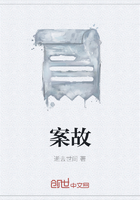And he went down to tell the result to five or six inquirers who were waiting in the yard, and who fancied that Hippolyte would reappear walking properly. Then Charles, having buckled his patient into the machine, went home, where Emma, all anxiety, awaited him at the door. She threw herself on his neck; they sat down to table; he ate much, and at dessert he even wanted to take a cup of coffee, a luxury he only permitted himself on Sundays when there was company.
The evening was charming, full of prattle, of dreams together.
They talked about their future fortune, of the improvements to be made in their house; he saw people's estimation of him growing, his comforts increasing, his wife always loving him; and she was happy to refresh herself with a new sentiment, healthier, better, to feel at last some tenderness for this poor fellow who adored her. The thought of Rodolphe for one moment passed through her mind, but her eyes turned again to Charles; she even noticed with surprise that he had not bad teeth.
They were in bed when Monsieur Homais, in spite of the servant, suddenly entered the room, holding in his hand a sheet of paper just written. It was the paragraph he intended for the "Fanal de Rouen." He brought it for them to read.
"Read it yourself," said Bovary.
He read--
" 'Despite the prejudices that still invest a part of the face of Europe like a net, the light nevertheless begins to penetrate our country places. Thus on Tuesday our little town of Yonville found itself the scene of a surgical operation which is at the same time an, act of loftiest philanthropy. Monsieur Bovary, one of our, most distinguished practitioners--'"
"Oh, that is too much! too much!" said Charles, choking with emotion.
"No, no! not at all! What next!"
" '--Performed an operation on a club-footed man.' I have not used the scientific term, because you know in a newspaper everyone would not perhaps understand. The masses must--'"
"No doubt," said Bovary; "go on!"
"I proceed," said the chemist. "'Monsieur Bovary, one of our most distinguished practitioners, performed an operation on a club-footed man called Hippolyte Tautain, stableman for the last twenty-five years at the hotel of the "Lion d'Or," kept by Widow Lefrancois, at the Place d'Armes. The novelty of the attempt, and the interest incident to the subject, had attracted such a concourse of persons that there was a veritable obstruction on the threshold of the establishment. The operation, moreover, was performed as if by magic, and barely a few drops of blood appeared on the skin, as though to say that the rebellious tendon had at last given way beneath the efforts of art. The patient, strangely enough--we affirm it as an eye-witness--complained of no pain. His condition up to the present time leaves nothing to be desired. Everything tends to show that his convelescence will be brief; and who knows even if at our next village festivity we shall not see our good Hippolyte figuring in the bacchic dance in the midst of a chorus of joyous boon-companions, and thus proving to all eyes by his verve and his capers his complete cure?
Honour, then, to the generous savants! Honour to those indefatigable spirits who consecrate their vigils to the amelioration or to the alleviation of their kind! Honour, thrice honour! Is it not time to cry that the blind shall see, the deaf hear, the lame walk? But that which fanaticism formerly promised to its elect, science now accomplishes for all men. We shall keep our readers informed as to the successive phases of this remarkable cure.' "
This did not prevent Mere Lefrancois, from coming five days after, scared, and crying out--
"Help! he is dying! I am going crazy!"
Charles rushed to the "Lion d'Or," and the chemist, who caught sight of him passing along the Place hatless, abandoned his shop.
He appeared himself breathless, red, anxious, and asking everyone who was going up the stairs--
"Why, what's the matter with our interesting strephopode?"
The strephopode was writhing in hideous convulsions, so that the machine in which his leg was enclosed was knocked against the wall enough to break it.
With many precautions, in order not to disturb the position of the limb, the box was removed, and an awful sight presented itself. The outlines of the foot disappeared in such a swelling that the entire skin seemed about to burst, and it was covered with ecchymosis, caused by the famous machine. Hippolyte had already complained of suffering from it. No attention had been paid to him; they had to acknowledge that he had not been altogether wrong, and he was freed for a few hours. But, hardly had the oedema gone down to some extent, than the two savants thought fit to put back the limb in the apparatus, strapping it tighter to hasten matters. At last, three days after, Hippolyte being unable to endure it any longer, they once more removed the machine, and were much surprised at the result they saw. The livid tumefaction spread over the leg, with blisters here and there, whence there oozed a black liquid. Matters were taking a serious turn. Hippolyte began to worry himself, and Mere Lefrancois, had him installed in the little room near the kitchen, so that he might at least have some distraction.
But the tax-collector, who dined there every day, complained bitterly of such companionship. Then Hippolyte was removed to the billiard-room. He lay there moaning under his heavy coverings, pale with long beard, sunken eyes, and from time to time turning his perspiring head on the dirty pillow, where the flies alighted. Madame Bovary went to see him. She brought him linen for his poultices; she comforted, and encouraged him. Besides, he did not want for company, especially on market-days, when the peasants were knocking about the billiard-balls round him, fenced with the cues, smoked, drank, sang, and brawled.















